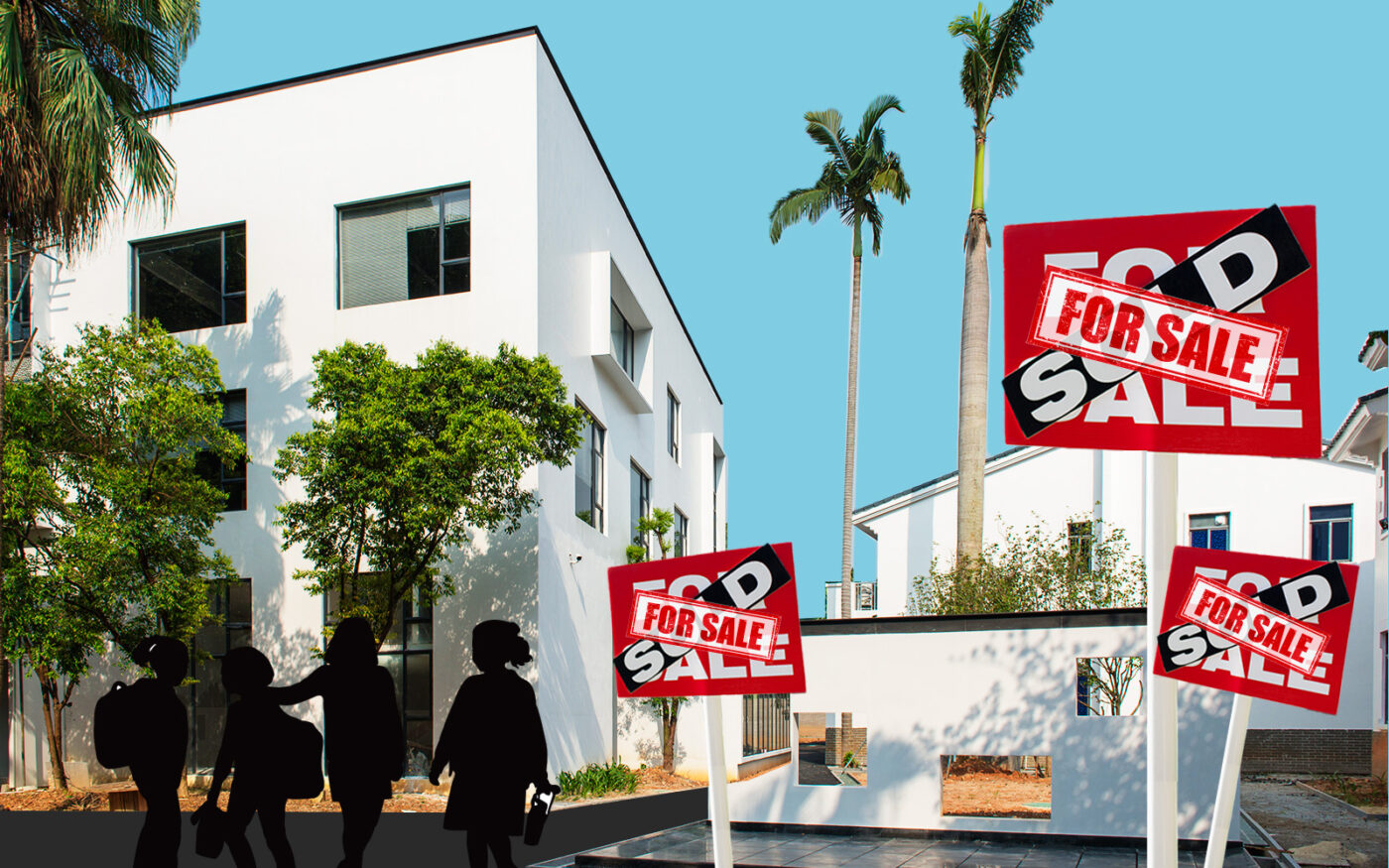Not one empty seat could be found at the Benjamin School when classes started on Tuesday.
“We’re completely full,” said Amy Jablonski, the Palm Beach Gardens private school’s director of enrollment management.
Across South Florida, private school acceptance rates are down, and enrollment is at unprecedented highs. The culprit: The same migration of wealthy families driving the region’s luxury real estate boom, inbound from California and the Northeast. Many of these families are following their employers relocating to Miami’s Brickell and West Palm Beach’s Wall Street South.
“They are so worried about getting their kids into private school,” Jaclyn Bild, an agent with Douglas Elliman in Miami, said of this buyer pool.
The extraordinary competition for South Florida’s private schools means brokers are losing deals, while developers and business leaders are campaigning to attract private school development to meet heightened demand. A recent change in Florida law also makes all families in the state eligible for school vouchers, which provide up to $8,000 in scholarships they can use at private schools.
Experts are saying private school admissions in the region are a supply-and-demand problem that won’t be solved for years.
When Bild was growing up in Miami, parents were concerned about their kids having good grades and high test scores to get into top schools — not if the schools would have a desk for them.
“There’s never really been an issue with waitlists,” she said.
Now, waitlists are never-ending, and brokers say they’re losing business as a result.
“I lost a deal a year or so ago because he couldn’t get his kid into a private school in Boca,” said Aaron Buchbinder, an agent with Compass in Boca Raton. “[The client’s child] ended up getting into Miami Country Day, [near Miami Shores, so] he went down there.”
Brokers say their clients are buying homes wherever their child gets admitted, forgoing proximity to work and overriding their preference for a certain neighborhood.
Bild had to refer some would-be clients to other agents after their roll of the admissions dice landed them outside Miami-Dade County. “I had to use a lot of my resources and ultimately not get that sale,” she said.
No signs of relief
The intense scramble for schools shows no indication of relaxing in the near-term. Florida led the 50 states in net migration between 2021 and 2022, according to U.S. Census data, and some estimates show more than 1,000 people move to the state every day. Kelly Smallridge, president and CEO of the Business Development Board of Palm Beach County, says another major migration wave is coming in a few years.
“There’s about 850,000 square feet of Class A office space under construction in downtown West Palm Beach. It’s not a matter of if, but when these buildings are going to open,” Smallridge said. “When they are complete it’s going to drive a lot of out-of-state companies into the space.”
And that means even more out-of-state families. Smallridge has been working closely with the real estate industry to ensure Palm Beach County has the necessary educational infrastructure when they arrive, particularly offering more private schooling capacity. She says developers like the Frisbie Group and Steve Ross’ Related Companies, one of the biggest offices builders in West Palm Beach, are among the firms campaigning for private school development in the area.
“There are about two to four private schools that are interested in the area. There are more that are taking a look at the area,” she said, noting that no schools have purchased a site yet.
At an event in January, Ross said Related Companies had approached private schools in Florida and the Northeast about opening Palm Beach County locations. “We’re getting interest, but it’s not something that we can really do overnight,” Ross said at the event, the Palm Beach Daily News reported.
New schools emerging
One prospective school is North London Collegiate School (NLCS), a private school with campuses in London, South Korea, Dubai and Singapore. In a presentation to the Village of Wellington in May, the school proposed developing a campus on a tract of land owned by the municipality.
The proposed campus would have capacity for up to 1,700 students and 250 teachers with an average annual tuition of $40,000, according to the school’s representative, Luis García de Brigard.
“We have been researching the area of South Florida for over two years now,” he said, emphasizing the “very significant scarcity of premium private schools” in his pitch. Private schools in the region are at 96 percent enrollment capacity, according to García de Brigard’s research, which he said is effectively no capacity.
Wellington’s Village Council agreed to continue discussions with NLCS following the meeting. García de Brigard also noted the school is looking at a site in Delray Beach.
Yet, South Florida does not have an abundance of sites for new school campuses. Smallridge said that potential new campuses need to have the capacity for school traffic and athletic fields, and zoning can often pose a challenge. In a recent search for sites, the Business Development Board of Palm Beach County identified just four, she said.
Further south in Miami, another prestigious private school with global reach is already in development. Avenues the World School, which has campuses in New York City, Silicon Valley, São Paulo, and Shenzhen, bought a 15.5-acre site at 4949 Northeast 2nd Avenue for $60 million in 2018. It received approval for a 2,440-student campus in January, Bloomberg reported. It is set to open in 2025. Avenues’ annual tuition is $65,850, according to the school’s website.
Other schools, like Basis Independent and Xceed Preparatory Academy, are adding South Florida campuses. But meaningfully higher capacity is years away. In the meantime, Step Up for Students President Doug Tuthill says real estate agents need to be prepared to coach their buyers on navigating the school scene.
“It’s a very significant, changing landscape,” he said. “They need to be able to talk to families about all the options they have.”
